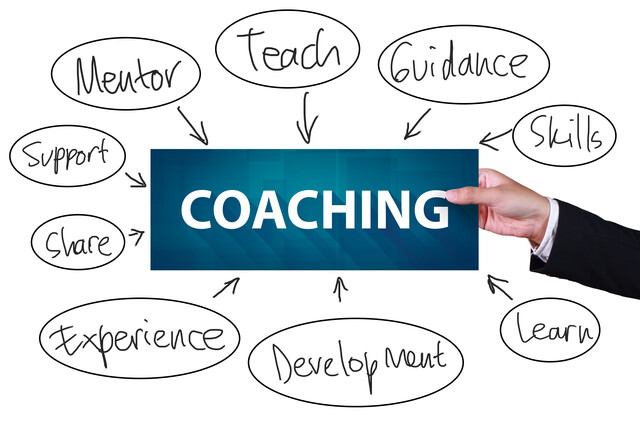By the end of this article, students should be able to:
- understand economic hang-ups;
- appreciate that honesty about money is difficult for nearly everyone;
- start addressing economic concerns immediately.
No, we are not talking about hanging up on creditors when they call to collect money you do not have. Economic hang-ups are the bad habits and beliefs that keep people rooted in financial distress and may lead to depression, anxiety, relationship problems, and even bankruptcy.
With the current economy, it is no wonder that this is probably going to be a hot topic. Home foreclosures seem to be multiplying like bunnies, the value of the dollar seems to be ever-decreasing, and gasoline prices are forcing many of us to question our driving habits.
Most people do have hang-ups about money and spending. Some of it is generational; some of it is learned; some is good, and some is bad. Labels can be particularly confusing; for example, what exactly is "rich," "poor," or "middle class"? People seem to define these terms for themselves. The definitions can be based on guidelines set by the U.S. Department of Health and Human Services; for example, the 2008 Federal Poverty Guideline for a family of four in the contiguous 48 states is $21,200. Perceptions of wealth can be shaped by what one's family believes, or they can be relative to your environment, as in the case of Africa, where $21,200 for a family of four may be considered rich.
In fact, these hang-ups can be emotionally devastating to people when they need not be. There is very definitely poverty in all areas of the world, but someone who is single and making $50,000 may also feel poor.
When addressing financial and economic wellness, it is important to start with money beliefs. Determine whether money is simply needed for survival, and chances are you will not meet many clients like these unless you are providing services pro bono; whether it is lacking because of the need to support others through alimony, child support, elderly parents needing assisted living, or other demands; or whether the crunch is self-imposed because the client simply feels he or she should not spend anything.
We have probably all heard the phrase "keeping up with the Joneses." It encapsulates that feeling or desire to have all the latest goods and services that one feels is necessary to a certain quality of life. It is possible to become so wrapped up in this need to keep up that we lose sight of what is really important to us: financial security in case of a crisis, retirement funds so we do not have to work until we are 80, or simply being able to take a vacation every other year to focus on relaxation.
Again, it is important to remember that you are not a financial adviser. If clients have money questions and needs that go beyond what you can provide, refer them to someone who can help them professionally and legally. You certainly do not want to be found liable for bad stock market advice if you do not have the licensure and insurance to back it up.
Honesty about Money Is Hard
How often have you asked or been asked, "How much do you make?" Chances are it has not been very often. It seems rude, personal, and challenging, so many people avoid the question altogether. It can also show insecurity on the part of the questioner, who may want to validate his or her own position in the world, at work, at home, or something else by knowing he or she makes more.
Sometimes, though, this secrecy about money extends to ourselves. Have you ever used a credit card to buy something that was not because of an emergency? If so, you have not been honest with yourself. If you cannot afford it now, and it is not an emergency, you do not need it. You are fooling yourself if you think you do. Suze Orman is a great reference for money honesty.
The pressure to appear a certain way or to have a certain life are pressures that we put on ourselves. Society has those messages out there, and our co-workers, friends, and family may also be contributing, but we make our own choices when it comes to how we spend and value our money.
Because economic wellness goals often include some amount of debt elimination, we will focus on that topic for a bit. If a client has debts, no matter how much they are, the important thing to drive home is the need to start somewhere.
So much time can be lost looking for "the magical solution" when none exists. In fact, there are lots of similarities between physical wellness, especially diet and exercise, and economic wellness. The equation needs to be spend less, save more, similar to the weight-loss formula of eat less, exercise more.
Consider all of the things we think we need: Do we really need them? Can you even tell the difference anymore between a true need and a want? Is it something that should go on your "I have to have this to survive" list or something that should go on a wish list?
There are lots of tools for getting finances under control and paying off debt. One need only use an Internet search engine to find resources, books, calculators, and anything else needed. What is important, in a wellness coaching setting, is to set the realistic, measurable goals.
Be honest about debt and spending. Make a list, pull your credit cards out of your wallet, open all those envelopes containing bills, and get started. Organize and prioritize. Do you want to pay off one thing at a time? Will you feel better if you put a minimum payment down on each bill each month? Should you call to find out what financial arrangements can be agreed upon between you and anyone you owe?
Start somewhere, make a plan, and stick to it. Sometimes just getting going can increase motivation and keep you going. Try to keep track of your progress, too, so you can see that it is making a difference.
Economic wellness does not just impact one's bank account, wallet, or retirement. It can affect mental and physical well-being. The stress it causes to oneself may cause anxiety, depression, or even psychosomatic illnesses, such as pain without an identifiable source, digestive trouble, and headaches.
There are also very logical links between mental/physical wellness and economic wellness. If one is unable to afford health insurance, real health problems may go undiagnosed and untreated, leading to more severe or long-lasting illness. This can also start an unfortunate cycle in which one misses more work because of illness or even becomes permanently disabled. The financial toll can be devastating.
As with all areas of wellness, when one is balanced, it can have far-reaching positive effects on other areas. It is an area that is usually less taboo to approach than religion or politics, but still right up there. So be sensitive to clients when approaching it. Keep judgment in check, use humor as appropriate, and encourage action.
By the end of this section, students should be able to:
- understand how to balance other areas of wellness when one area is in crisis;
- appreciate the effects on client and coach;
- help clients find the exceptions to the rule.
Introduction
Times of crisis are so stressful and all-consuming that it is easy to lose focus. Through the lens of crisis, everything looks bigger and more impossible to handle. It is important to recognize a crisis for what it is, learn how to keep other areas of wellness from being sucked into the crisis, and learn how a crisis affects the entire wellness coaching process.
Crisis and Staying Balanced
A crisis plan can be a good addition to any wellness treatment plan. It takes a look at basics that may be needed in a time when clear-thinking and problem-solving may not be at their optimum level.
A basic crisis plan can help to keep you balanced in other areas of your life. One area of improvement in wellness can have positive effects on others. Unfortunately, the same can be true in reverse. If physical health is spiraling downward, it can have a negative effect on spiritual wellness, body wellness, and financial wellness.
It is wise to think of it in these terms: If one area of my life is messy, I had better fight even harder to keep everything else up to par. Otherwise, you are simply compounding the problem with new problems and it will take longer to pick yourself up and recover.
The Crisis Affects Both Client and Coach
For the client, this time is draining, worrisome, scary, even potentially life-threatening. She or he will be narrowly focused during this time, and that is okay. The client needs to pull in, concentrate resources to find solutions, and conserve energy and focus.
However, many coaches do not realize until it starts to take a toll on their balance that a client's crisis affects them as well. This is not just in a practical, emergency call or emergency session sense, but even the most well-balanced may find themselves a bit out of whack.
Wellness coaches tend to be sympathetic, empathetic, caring folks who like to see the people around them succeed. When a client has a major bump in the road, it can be harder for a coach to "leave work at work" and not continue to worry or have some sleeplessness or even feel pulled to go above and beyond the usual services in an effort to relieve stress or pressure from the client.
A word of caution: In general, it is not a good idea for the coach to express these things to the client. The client in crisis would most likely see this as, "Oh, sorry that my crisis is affecting you so much." It may seem kind of selfish and probably would not be appreciated. Nonetheless, we feel what we feel.
Resources can include anything from the Red Cross, to churches, the YMCA, shelters, food pantries, and so on; these can be tailored depending on the potential for, say, a tornado in the Midwest or a hurricane in the South. Again, phone numbers, addresses, and contact names are all good to include on the resource list.
Locations may already be covered in the above supports and resources, but they should include any place where the client knows she or he can go for help, protection, information, or that can be used as a meeting place by the client and his or her family in the event they are separated.
As for specific instructions, this will vary widely depending on the client's needs. If the client has specific physical or mental health issues, behavioral problems, allergies, legal orders, and the like, these may be good to include in the crisis plan.
It is advisable for both the client and coach to have a copy of a completed crisis plan on hand, in case a client is away from home, incapacitated for some reason, or simply loses his or her copy. In the event that a client agrees for you to keep a copy, it is advisable to have the client sign a consent or waiver regarding how and when it is to be used by the coach.
Finding Exceptions to the Rule
One way in which to do this is to call upon previous exceptions. Even if this particular crisis is unlike anything the client has ever been through, chances are the client has been through another crisis. How did the person get through that? Where are the successes? No one lives life in a continual crisis unless she or he chooses to view it that way, so look for and find the exceptions.
When a client is reminded of past successes, it can be easier for the person to see how the current issue probably will not completely devastate his or her life, either.
Have patience during crisis, as thoughts are not always clear, rational, or practical. Focus on solutions and not what-ifs.
If the coach is in crisis, it is also easy to lose perspective. Just because you can be objective with others does not mean you will always be objective when you find yourself knocked a bit loose. In those cases, apply the same advice to yourself as you would to your clients. Use your crisis plan if you have one. Call on supports and resources as necessary. Keep other areas of your life and wellness in check to the best of your ability. Pay attention to the messages circling in your head; could they use some reprogramming through affirmations right now?
While it has been said that a lawyer who defends himself has a fool for a client, the same is not true in wellness coaching. Remember, you are a role model for your clients, so it is not a bad idea to try out the strategies you recommend on yourself!




























